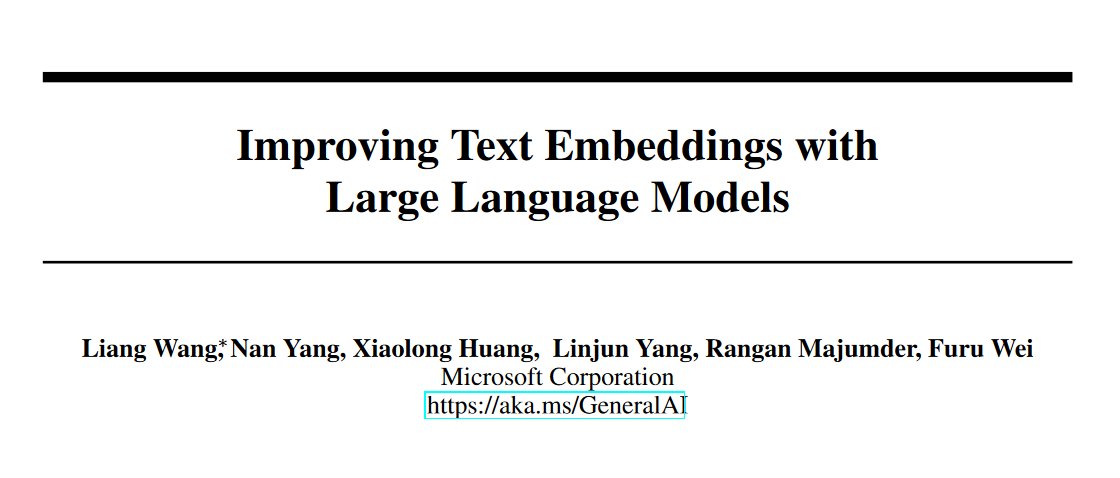
❓Your RAG workflow is only as good as the retrieved context. Can you use LLMs to improve recall and search relevance for dense retrievers?🤔
📜Work from Microsoft uses synthetic data + LLMs as embedding models to achieve SOTA on the MTEB benchmark.
⏩In Short:
They generate a multilingual synthetic retrieval dataset using GPT-4 which includes {queries, positive matches, hard negatives}.
They use this synthetic dataset along with 13 other public datasets and embed the queries & positives/negatives using the last layer vectors of Mistral-7B.
They tune the Mistral-7B embedding model using a contrastive loss along with embeddings from step 2.
Using this fine-tuned Mistral-7B as an embedding model then achieves SOTA(+2.4%) on MTEB.
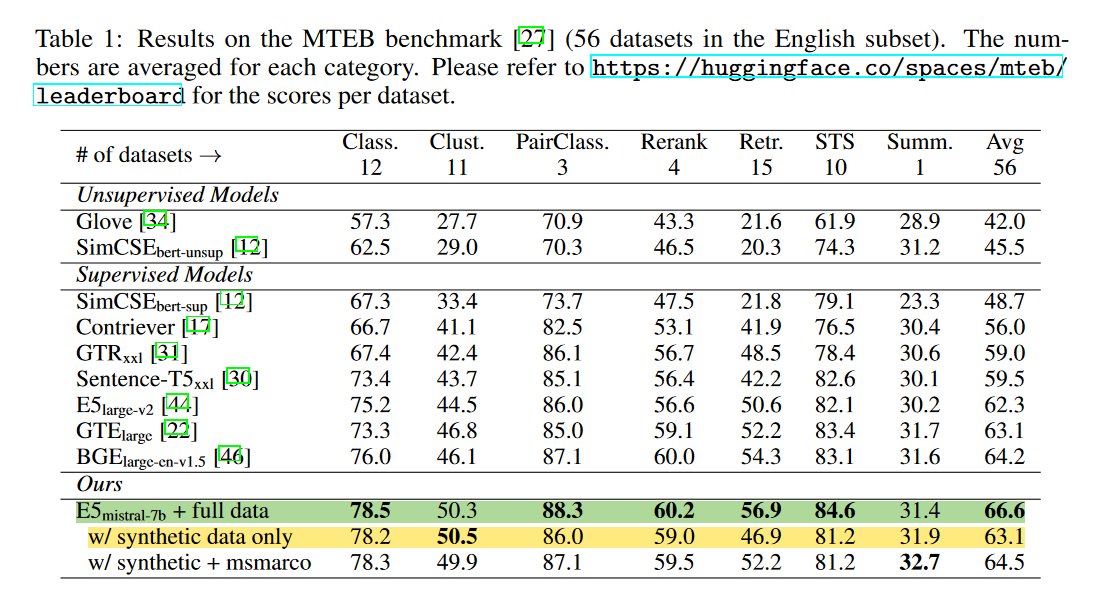
❌ Limitations/Short-coming: Potential data contamination? Didn't Mistral-7B have access to all MTEB benchmark datasets? - The MTEB was released(Oct 2022) before the training cutoff(~2023) of the model. So there might be some contamination since we are using the LLM to embed this same data.
- maybe I just don't understand!🤷
📑The details:
- The synthetic data generation consists of prompting GPT-4 to brainstorm a list of potential retrieval tasks followed by getting GPT-4 to generate (query, positive, hard negative) triplets for each task.
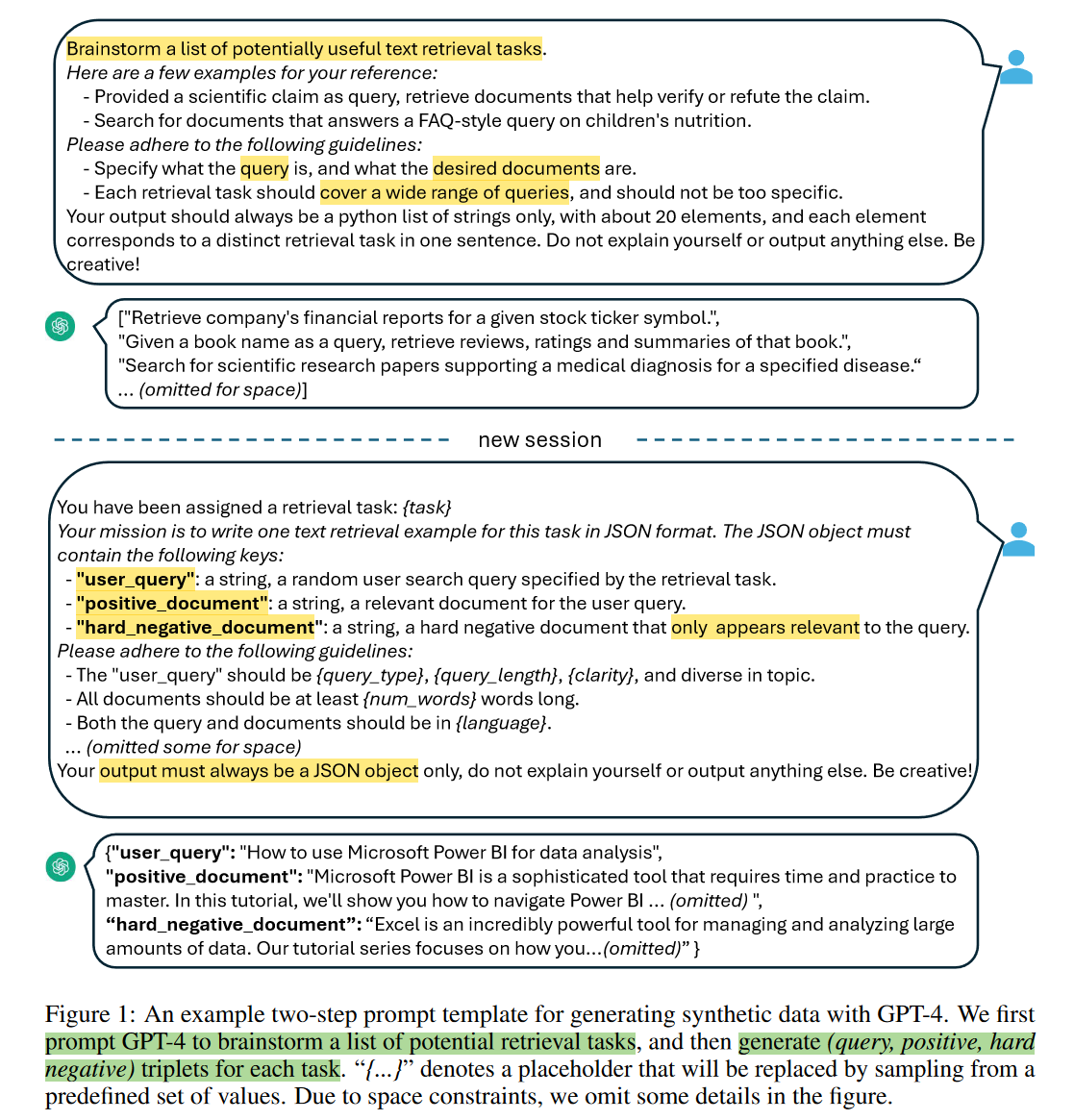
- This synthetic data captures text embedding tasks in 93 languages, covering 1000's of embedding tasks. - see prompt templates for how this diversity is obtained and the different tasks that are generated
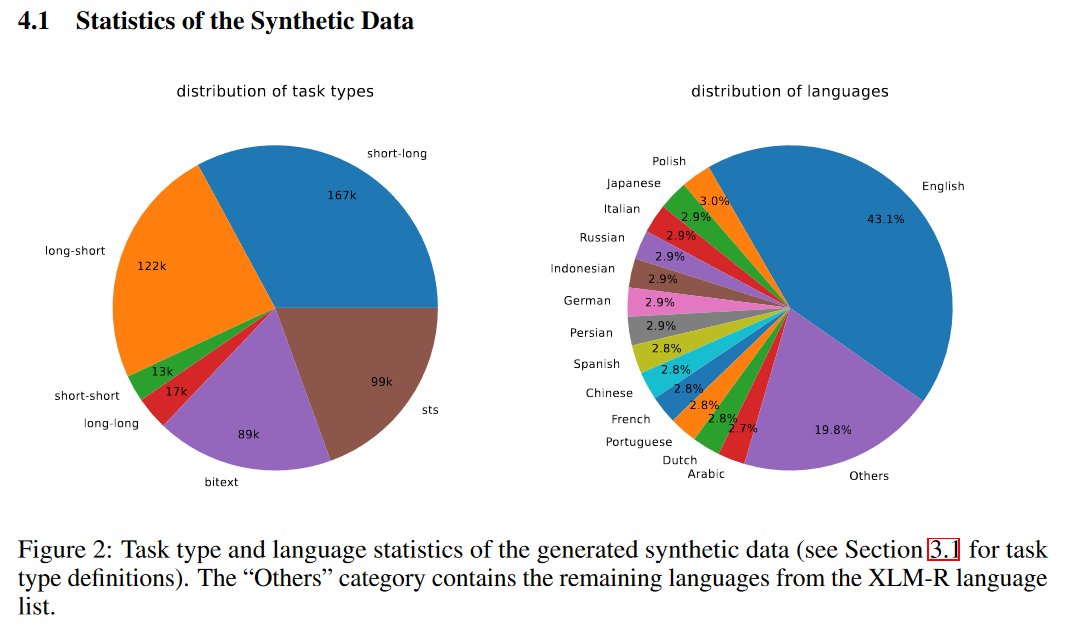
Fine-tune Mistral-7B using standard contrastive loss with a temperature-scaled cosine similarity with LoRA with rank 16.
For Mistral-7B based models, contrastive pre-training has negligible impact on the model quality. This is surprising since it's one of the key factors behind the success of existing text embedding models.
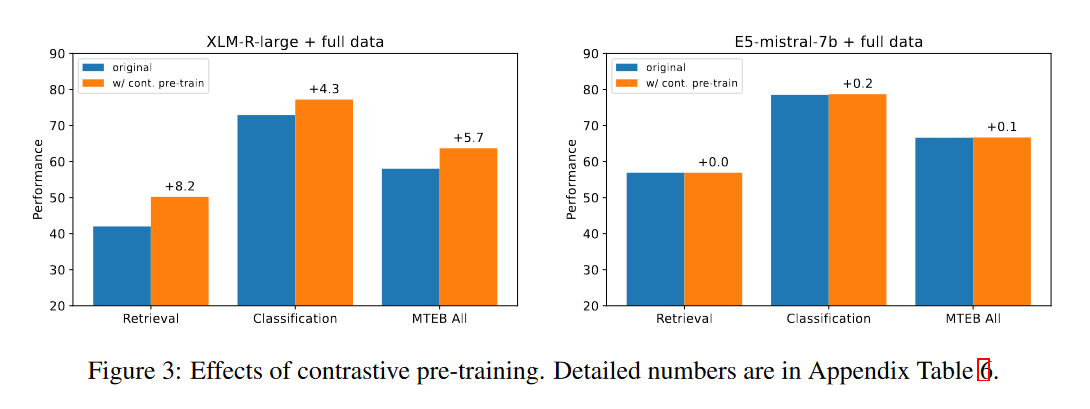
🚀Pretty cool work overall, anytime an LLM augments a well studied field and beats SOTA it's exciting times! They show that language modeling and text embeddings are two sides of the same coin.🪙
Given an embedding task prompt template, a robust LLM should be able to generate training data and then be transformed into an embedding model through light-weight fine-tuning.
Ready to start building?
Check out the Quickstart tutorial, or build amazing apps with a free trial of Weaviate Cloud (WCD).
Don't want to miss another blog post?
Sign up for our bi-weekly newsletter to stay updated!
By submitting, I agree to the Terms of Service and Privacy Policy.
